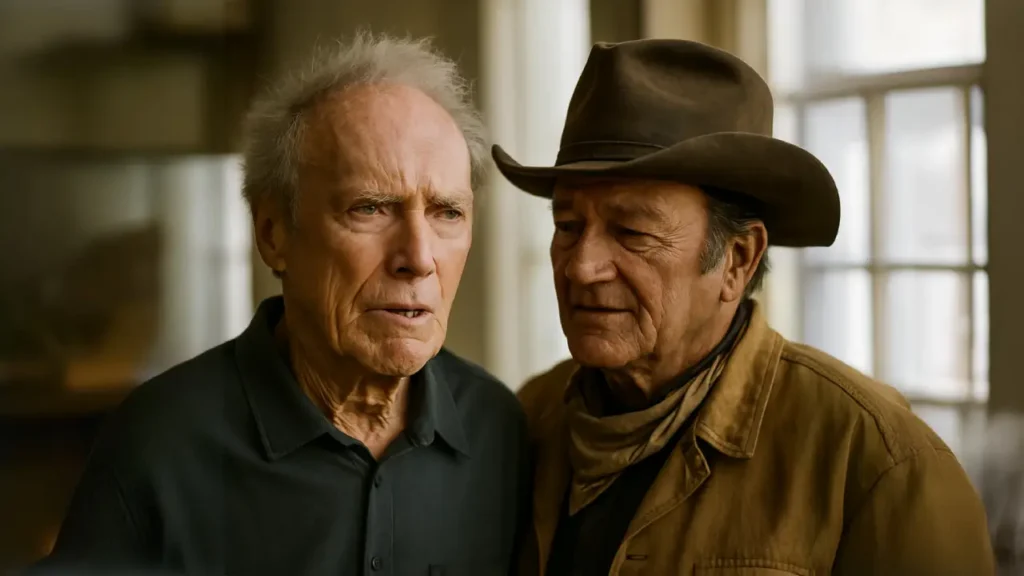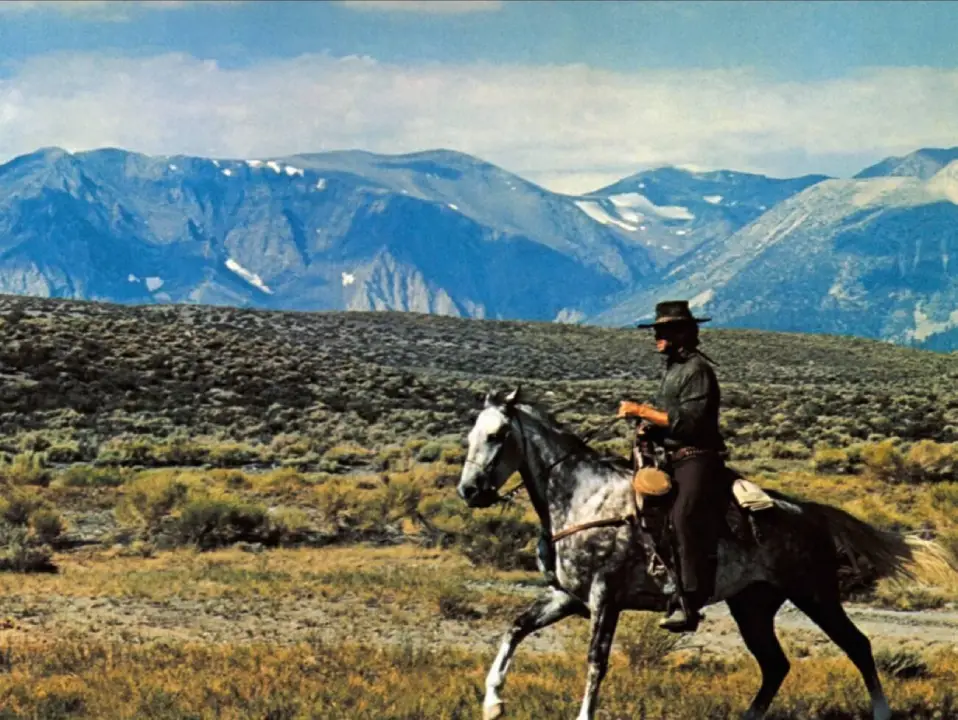At 94 Years Old, Clint Eastwood finally Confirms the Rumors About John Wayne

Hollywood back in the day, the land of dusty trails and even dustier egos. You had these two towering figures, John Wayne and Clint Eastwood. Seriously, when you thought "Western," those were the faces that popped into your head for like, ever. But here's the juicy bit – there's always been this low hum, this constant chatter, almost like the wind whistling through an old Western town, about whether these two actually liked each other. Did they butt heads? Were their personalities like oil and water? You know, the usual Hollywood drama. We've all heard the rumors, right?
Well, Clint Eastwood, still sharp as a tack at an incredible 94 years old, has seemingly decided it's time to set the record straight, offering what feels like a final word on one of Hollywood's long-running mysteries.
The Whispers in the Saloon: What Were the Rumors?
For years, the story went something like this: John Wayne, "The Duke," Mr. Classic Western Hero with those rock-solid American values, just couldn't stomach what Eastwood was doing. Clint, with his gritty Spaghetti Westerns and later, darker films like High Plains Drifter, wasn't following the old playbook. His characters were morally gray, the stories cynical, a far cry from the pioneering spirit Wayne was all about.
The rumor mill painted a picture of Wayne looking down his nose at Eastwood's vision, seeing it almost as an insult to the genre he helped build. It was the kind of backstage drama fans love to speculate about – a real clash of titans.
The Script That Never Was: "The Hostiles"
Things got really specific with the story about a script called "The Hostiles." Apparently, Eastwood found this script, thought it was great, and pictured himself playing a younger gambler opposite Wayne as an aging rancher. Sounds like potential movie magic, right?
But word is, Wayne took one look and flat-out refused. Not just refused, but supposedly sent Eastwood a letter basically tearing into High Plains Drifter, saying it wasn't what Westerns should be about. Wayne, according to the tales, felt Eastwood's movies missed the point, that they weren't about the real grit and spirit of the pioneers.
Eastwood's Perspective (then): "Wayne wouldn't understand what I was doing... [High Plains Drifter] wasn't meant to show the hours of pioneering drudgery. It wasn't supposed to be anything about settling the West."
You could almost see it, right? Two different generations, two radically different takes on the American frontier myth.
Eastwood Speaks: Setting the Record Straight at 94
So, did they hate each other? Was it a full-blown feud? Here's where the story takes a turn, thanks to Eastwood's recent reflections, shared through close circles. Looking back with the perspective only age can bring, Clint offers a more measured view.
He doesn't deny the creative differences. He acknowledges Wayne's criticisms. But a bitter feud? Not exactly.

Eastwood's Reflection (now, reportedly): "Wayne was Wayne... He represented a certain era, a certain kind of hero. I had my own vision of the West, grittier, perhaps more realistic in its own way. There was never a real 'feud' in the dramatic sense the press liked to portray. More of a… disagreement on the direction the genre was taking."
Think about that. Not a feud, but a fundamental disagreement about art, about storytelling. It paints a picture less of animosity and more of two incredibly strong-willed artists standing their ground on what they believed the Western should be.
Beyond the "Feud": Acknowledging the Duke's Craft
What's really interesting is that Eastwood didn't just dismiss Wayne. He's actually gone on record, now and in the past, praising some of Wayne's earlier, more complex work – films like Red River and The Searchers. He saw the depth Wayne could bring, even within that iconic heroic image. It hints at a respect running beneath the surface, an understanding of what the elder statesman contributed, even if their paths diverged.
And get this: there's even an account of them getting along just fine on the set of Wayne's final movie, The Shootist, which was directed by Don Siegel, Eastwood's own mentor. If they truly despised each other, that set probably would have been a powder keg. Instead, reports suggest it was... well, professional. Cordial, even.
Why Now? Context and Legacy
This clarification from Eastwood lands at a time when John Wayne's legacy is being looked at through a modern lens, particularly concerning controversial statements he made decades ago. While that's a separate, important conversation, Eastwood's focus here is purely on their professional relationship, their artistic differences within the world of filmmaking they both dominated.
What Eastwood's giving us, perhaps as the sun begins to set on his own legendary career, isn't juicy gossip confirmed. It's something more human: a story of two icons who saw the world, and the West, differently. They didn't have to agree. They didn't have to be friends. But according to Clint, the story wasn't about hate. It was about conviction, vision, and the sometimes-bumpy evolution of a film genre they both loved.
It feels like a fitting, grounded final chapter to those decades of speculation. Just two legends, standing tall in their own way, leaving behind cinematic footprints that will last forever.

Leave a Reply